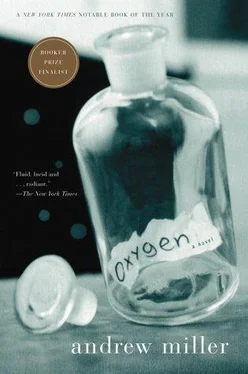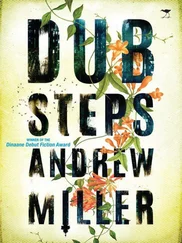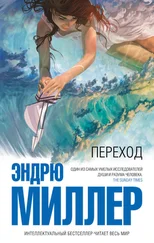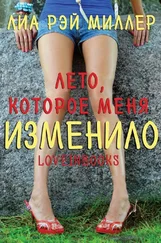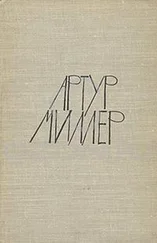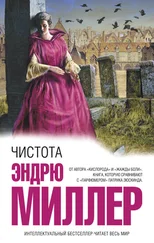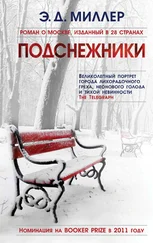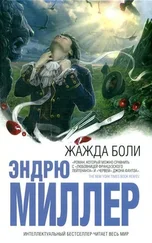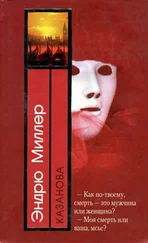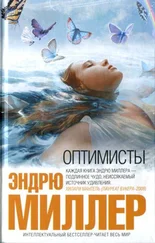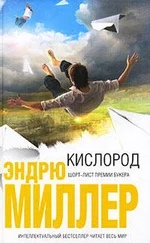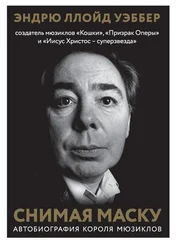What on earth was the Swedish boy’s name? She searched for a minute, but found nothing except a trace of darkness like a swipe of fresh black paint covering up the place in her head where the name should have been. Gone. Like the name of Mrs Samson’s eldest, who they were only talking about yesterday morning while Mrs S hoovered around the bed and ‘set things straight’. And the names of a dozen flowers, and… what was it, what was it she had forgotten the other day? Something else, the title of an opera she liked, or the name of the man who read the news on the radio which she knew perfectly well and had known for years. What she did remember often seemed quite random, as though her life were an old lumber room through which memory moved like a drunk with a torch, and she would find herself with a photographic recollection of the meat counter at Tesco’s, or remembering word for word a conversation with Toni about her poodle. She didn’t want to go with that in her mind, a last image of Toni’s poodle hovering transcendentally above her like the parrot in the Flaubert story.
Ding! Ding! Ding!…
The little blue-and-white jasper clock in the niche at the bottom of the stairs. Only ten o’clock! How epic the nights had become! And how she longed for someone to lay a hand on her brow, someone who would say, ‘All shall be well, all shall be well…’ Even poor Stephen would be welcome now, the youthful Stephen, the way he was at teacher training college in Bristol when they first met, puffing away at that silly pipe, cracking jokes, talking politics, twang of Manchester in his voice, Stalybridge. Of course, he was drinking even then, but they all did, it was part of being young, everyone talking too much and smoking their heads off. It was never a problem until Alec was born. Then, instead of getting merry on Friday and Saturday nights, he would stop off at the pub on his way home from the school and go on with it sitting in front of the television or down in the workroom. Brooding, drinking, dreaming up new enemies for himself, building his own elaborate hell. People said it got worse after he missed promotion to head of department at King Alfred’s. Others said it was because he wanted to be in higher education, not in a secondary school, that he didn’t really like children, but it wasn’t that. Something had gone wrong with Stephen before she had ever met him. God knows what. Talking personally he called ‘psychobabble’, and she got tired of looking in the end. Probably he didn’t know himself, because it wasn’t always neat. You can’t always give it a name. Like the cancer. What was the root of it? Stress? Cigarettes? Bad luck? Some secret weakness. A hairline fracture that one day brings the house down. None of us, she thought, none of us survives our imperfections.
He used to shout at her, which shocked her at first because she had never been shouted at in that way before, never seen how extraordinarily ugly a person can be when they shout like that. But he only hit her once, once being enough. A push in the back after some idiotic argument about Callaghan or the unions. It was in the kitchen. She had said something to him and was walking away when he lunged at her, shoving her so that she staggered and had to catch at the wall to stop herself from falling. She had been frightened for a moment, a little dizzy from the sheer unpleasantness of it all. Then she had turned to him, slowly and calmly, because she knew by then it was the same rule for drunks and dangerous dogs. Show no fear. And when their eyes met again, when he had the guts to look at her, there was a distance between them that neither would ever cross, and almost immediately she had felt a certain nostalgia, not for him, but for some idea she had had about her own life, some understanding she had suddenly outgrown. He was on a bottle a day by the time of the accident. Vodka mostly, but anything would do. The police said they’d found bottles in the car. In pieces, one imagines.
Months later, his mother called, quite late at night, and said a better woman would have saved him. You didn’t love him right, she said. You didn’t love him like you should, you didn’t, Alice. It’s a shame, she said. Shame on you. Bitch. What? Bitch, she said. And they had wept at each other down the telephone line for a long time, then sniffed and said goodbye, and that was that, apart from cards on the boys’ birthdays with a five-pound note inside.
Three men in a lifetime. It hardly made her Messalina. Rupert Langley, who had been her first beau, her tennis partner and escort, the boy she lost her virginity to. Then Samuel Pinedo. Then Stephen. A few more fumbled with at dances before she was married, or who had taken her out in the years after the accident to dinners or the theatre and kissed her goodnight in their cars.
She still sometimes played the ‘if’ game, wondering how her life would have been with Samuel. If he had asked her. If she had said yes. If. She was thirteen when he was introduced to her as someone ‘Daddy knew in the war’. A man with black brilliantined hair, lounging against the window frame in the front room. Thin, pale, a rather prominent Adam’s apple. Not a really handsome man. But something in his gaze had disturbed her. She didn’t know what it was, what to call it, but when she thought about it afterwards, she decided that he was the first man to have looked at her as a woman rather than as a child, and that there was a generosity in it, a chivalry, which even after nearly fifty years she had not quite recovered from.
His people had been in the diamond business in Amsterdam. Jews from old Spain. Seraphic? When the Nazis came they sent his parents, uncles, cousins and two sisters to the camps in Poland. Samuel had hidden like the little Frank girl, though he was luckier, of course. Got out. Came to England in a fishing boat. Six months later he went back. Helped to organize escape routes for aircrew until they caught him. After the liberation Queen Wilhelmina gave him a medal that he kept loose in the pocket of his suit jacket with his lighter and cigarettes.
She was eighteen when they met again. Nineteen before they became lovers. He was at the embassy in London then, Hyde Park Gate, and came down at weekends on the train from Paddington, and she would go with her father to meet him, terrified in case he had got off at some quite different station with his coat over his arm and his little case, and smiled at some other girl. Her father called him ‘the best sort of Jew’. He must have guessed what was going on but he never said anything. People didn’t in those days.
Was Samuel still alive? If so he’d be almost eighty, which she found impossible to imagine. She’d seen his name in The Times once. Part of a UN delegation to somewhere, so he must have had some success. Become somebody.
Lord! They did it in the garden shed once, on the workbench. Torn stockings, bruised backside, the air stinking of petrol from the lawnmower. He had scars on his back. A dozen ridges of purple skin, and when she asked him about them he winked at her and said it was a girl in Amsterdam with long nails. But nails don’t make marks like that. She used to touch them, stroke them very lightly, as though his back were rucked velvet she could smooth with her fingertips. What had he done with his pain? Had it come out later? Did he take to drink too? Or had someone helped him when he needed it? Making love he called dancing. She’d known next to nothing about sex before Samuel, and after him hadn’t learned much that seemed worth knowing.
The year her father died he was posted back to Holland. He left her a ring – not a diamond ring, but a gold band that had belonged to his mother, and which had his mother’s name engraved in curly letters on the inside. Margot. It had been too small to wear and it wouldn’t have been right. It was a keepsake. A remnant. The little Jewess’s ring. The little Jewess they had turned into ashes.
Читать дальше
